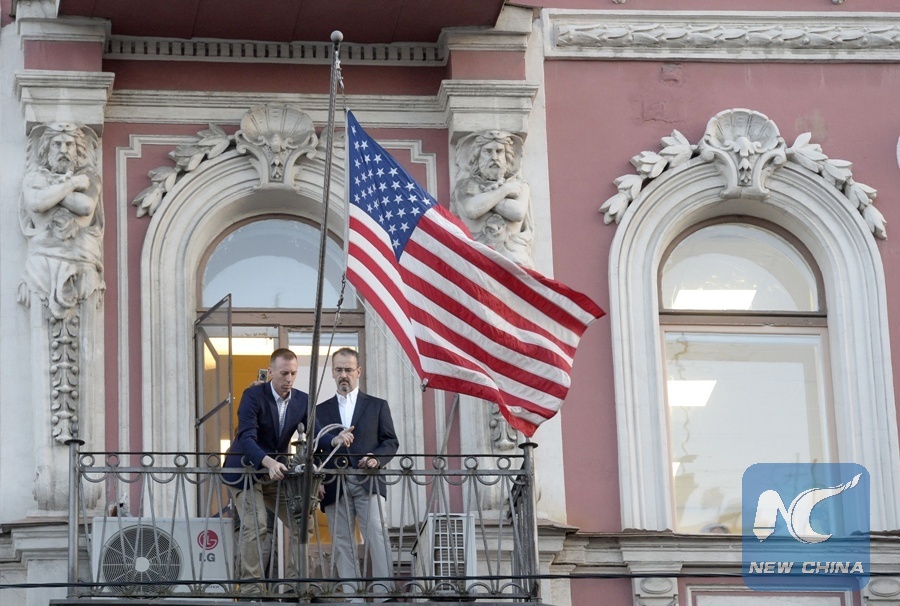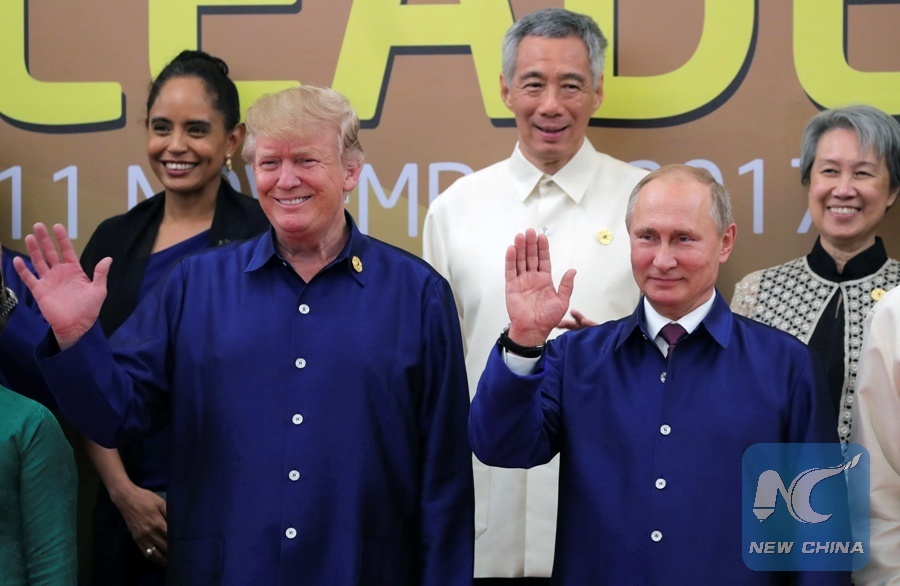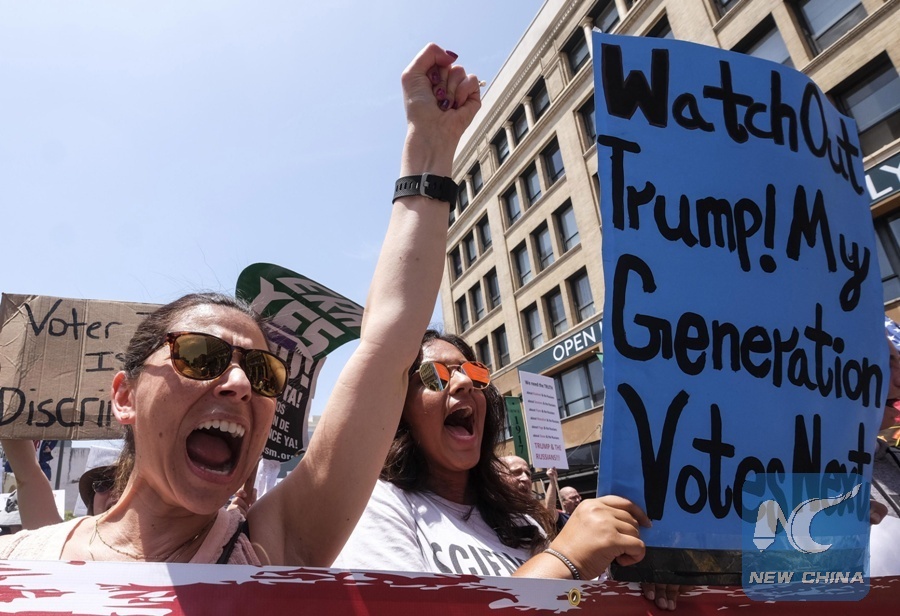
U.S. consulate's employees remove the U.S. national flag from the balcony of the U.S. Consulate in Saint Petersburg on March 31, 2018. (Xinhua/AFP)
by Matthew Rusling
WASHINGTON, April 4 (Xinhua) -- The Trump administration was reported on Wednesday planning to slap more sanctions on Russian business elite, which may lead the "bad blood" between Russia and the United States to further deterioration.
The relationship between Washington and Moscow has plunged to a new low, as the United States expelled 60 Russian diplomats and closed the Russian consulate in Seattle in a concerted action with Britain and other Western nations over an ex-spy poisoning case.
However, U.S. President Donald Trump has kept from criticizing Russia directly over the issue, but repeated his readiness to better relations with Russia and meet with Putin, sparking fierce domestic criticism.
Michael O'Hanlon, a senior fellow at the Brookings Institution, told Xinhua that Trump has a couple of "incorrect instincts" about Russia.
"The instincts that are wrong," O'Hanlon said, adding that Trump regarded Russian President Vladimir Putin as a strongman leader, and also "can't talk about Russia's role in the 2016 elections" from his position.

U.S. President Donald Trump and Russian President Vladimir Putin take part in a family photo at the APEC summit in Danang, Vietnam Nov. 10, 2017. (Xinhua/REUTERS)
"Because (in Trump's mind) it somehow weakens his own legitimacy, and he's just going to have to live with the fact that his win will always be somewhat tainted in many people's eyes ... And he doesn't like to talk about it, think about it, (or) acknowledge it," O'Hanlon explained.
Moscow's relations with the West has been sour over years amid disagreements involving the war in Syria, the conflict in Ukraine, and also the Kremlin's alleged meddling in the 2016 U.S. presidential elections, which Moscow has denied.
The reported sanctions to come followed reports earlier this week that a meeting might possibly take place between Trump and Putin.
However, it remains unknown whether the meeting will fix problems between the two nuclear powers, and some experts are negative on that possibility.
Dan Mahaffee, senior vice president and director of policy at the Center for the Study of Congress and the Presidency, told Xinhua that "while there is talk between Presidents Trump and Putin regarding a meeting in the near future, there is much to be determined in terms of logistics and the significant difference that remain between the countries."
He added that the U.S.-Russia relations will unlikely "improve before the 2018 elections."
So far, Trump has proven to be much tougher on Russia than many analysts had predicted in the lead-up to the 2016 U.S. presidential elections.

People holding placards participate in the March for Truth rally in Los Angeles, the United States, on June 3, 2017. Rallies and marches took place across the country on Saturday to call for investigation into possible Russian interference in the U.S. election and the links between Donald Trump's administration and Russia. (Xinhua/Zhao Hanrong)
He has approved weapons sales to Ukraine; ordered Russia to close its San Francisco consulate last year; and named Russia as a competitor in the U.S. national security strategy. He also recently booted several dozen Russian diplomats from the United States.
Lt. Gen. H.R. McMaster offered harsh words for Russia on Tuesday during a speech at the Atlantic Council in Washington in his last public remarks as national security adviser.
"We have failed to impose sufficient costs" on Russia, McMaster said, adding that the failure meant that "the Kremlin's confidence is growing."
Brookings Institution Senior Fellow Darrell West told Xinhua that "it is hard to see the two leaders meeting at a time consulates are being closed and diplomats kicked out. It will take a while to smooth over the simmering tensions."

